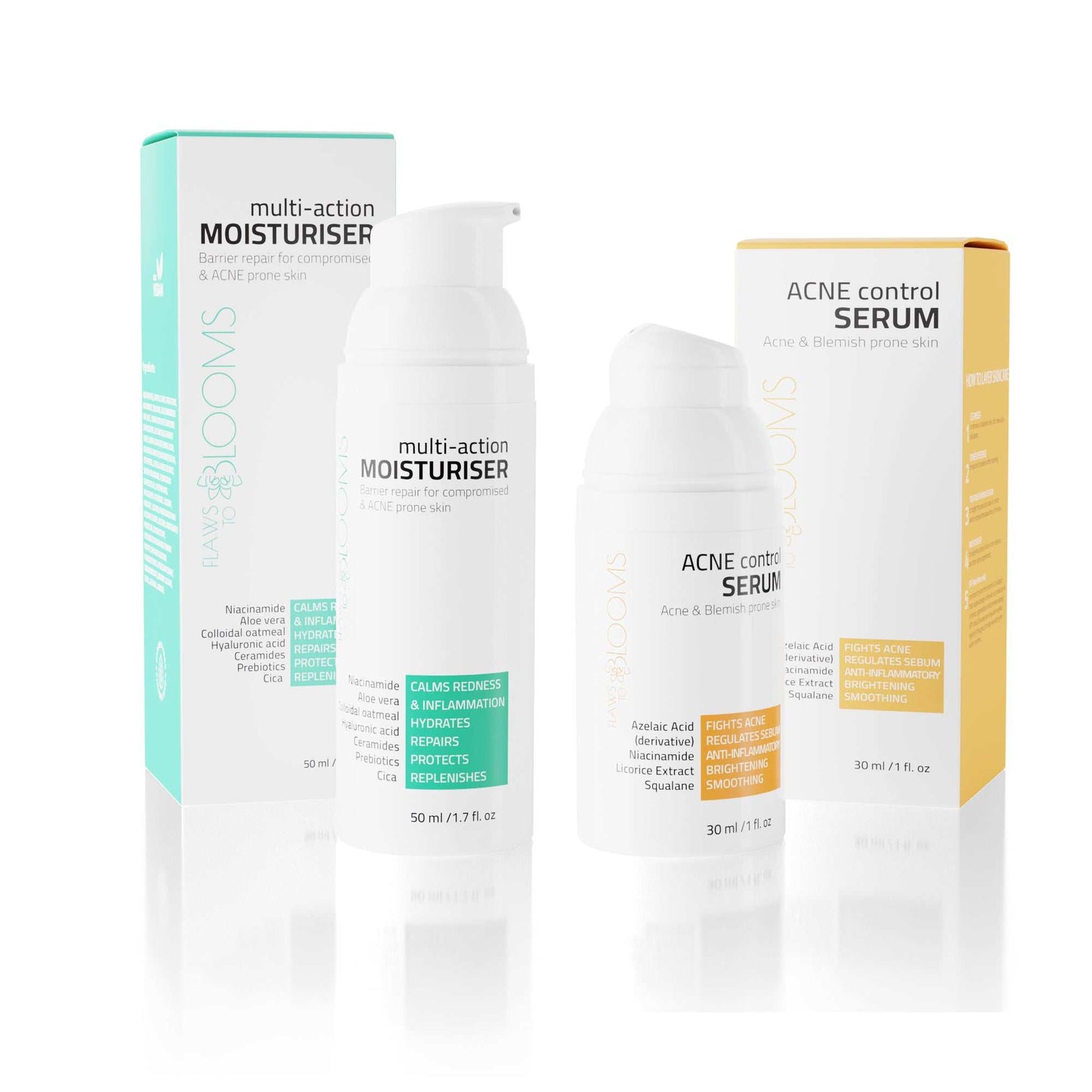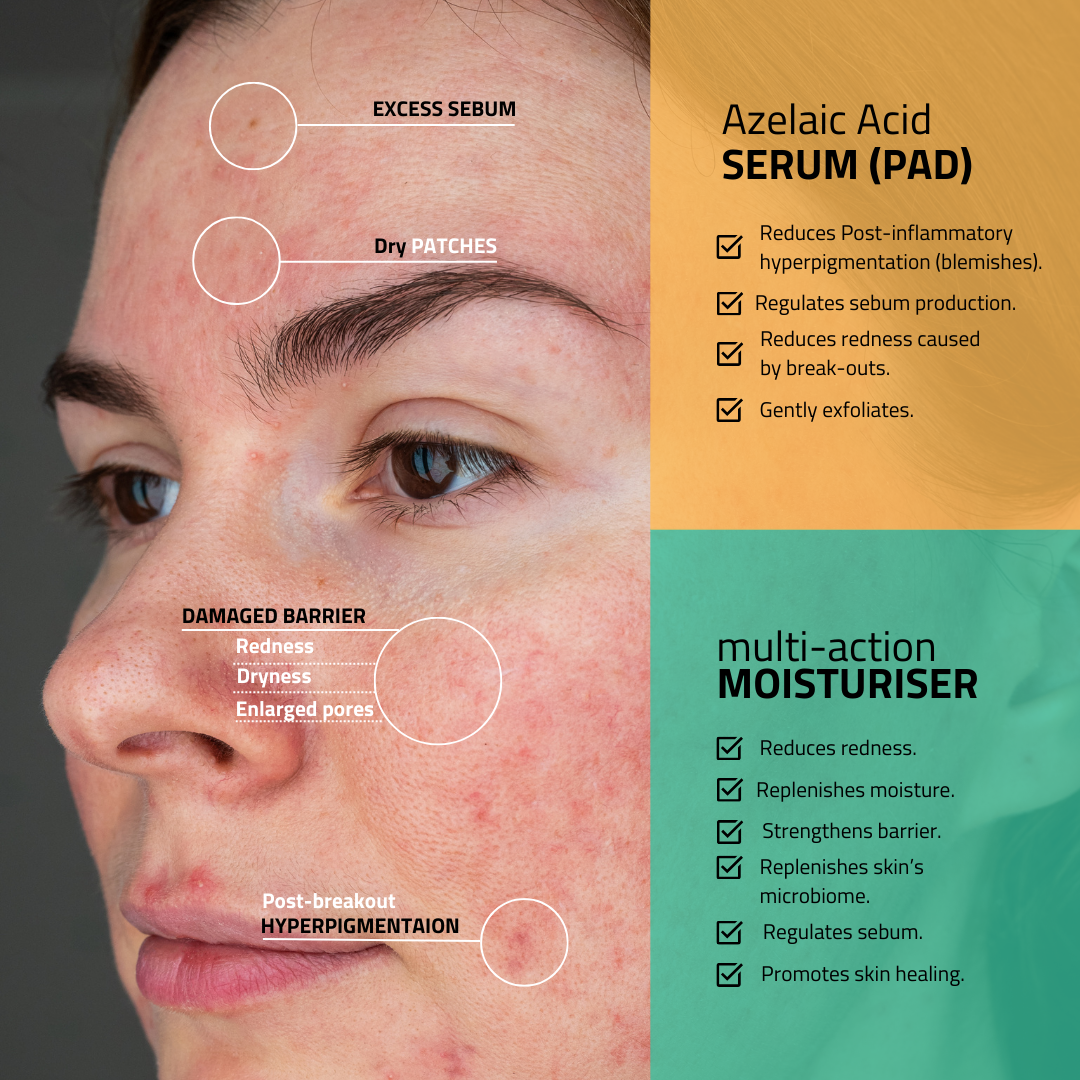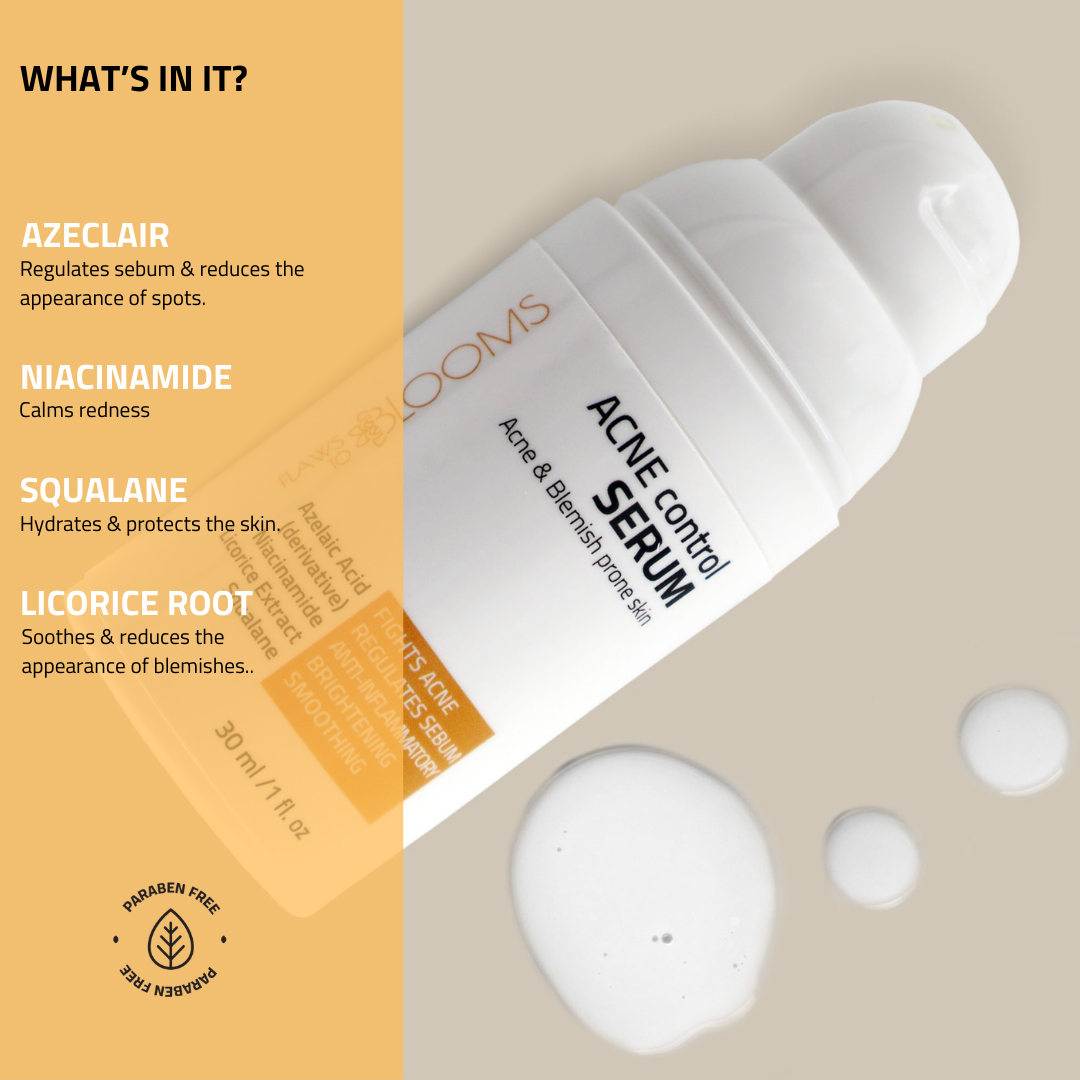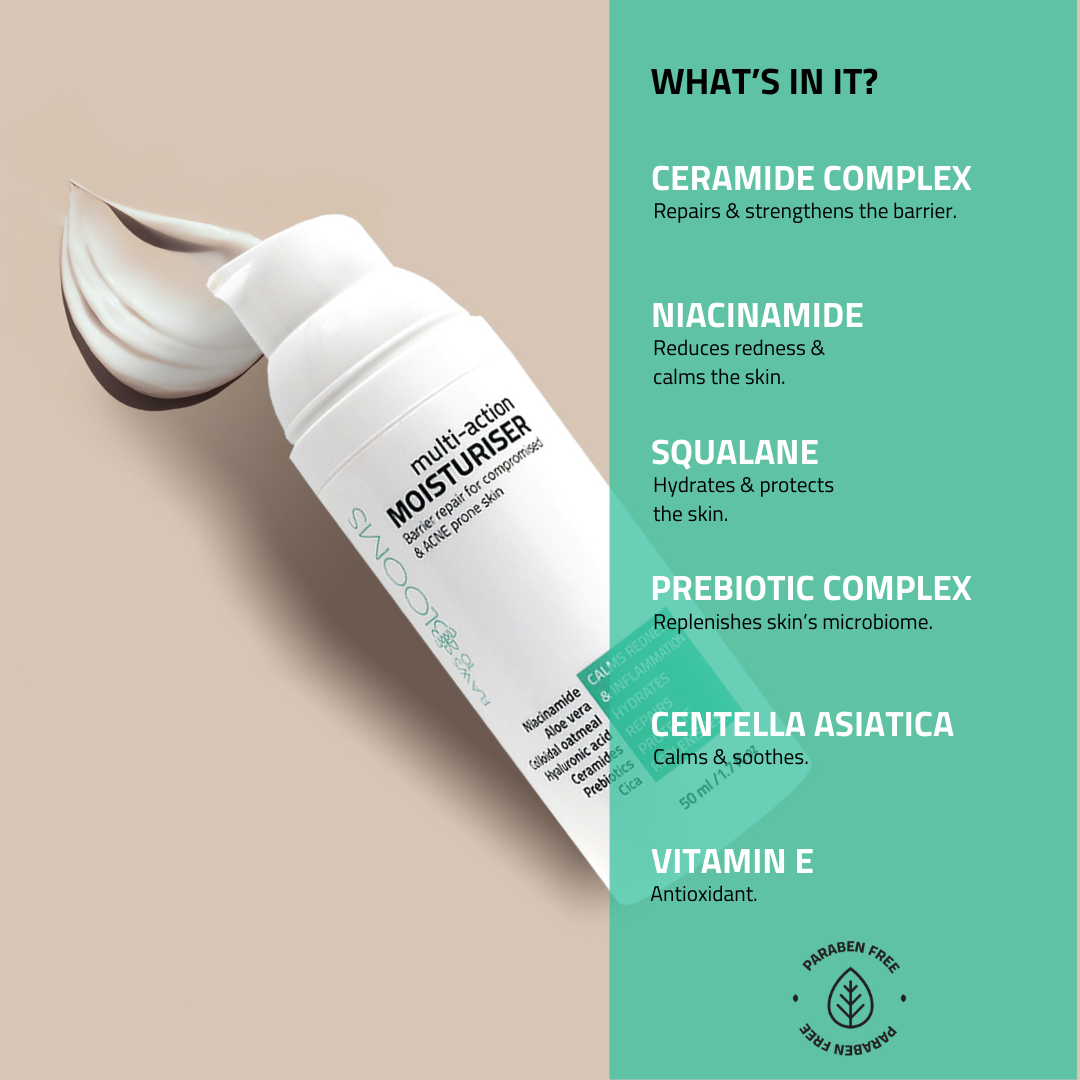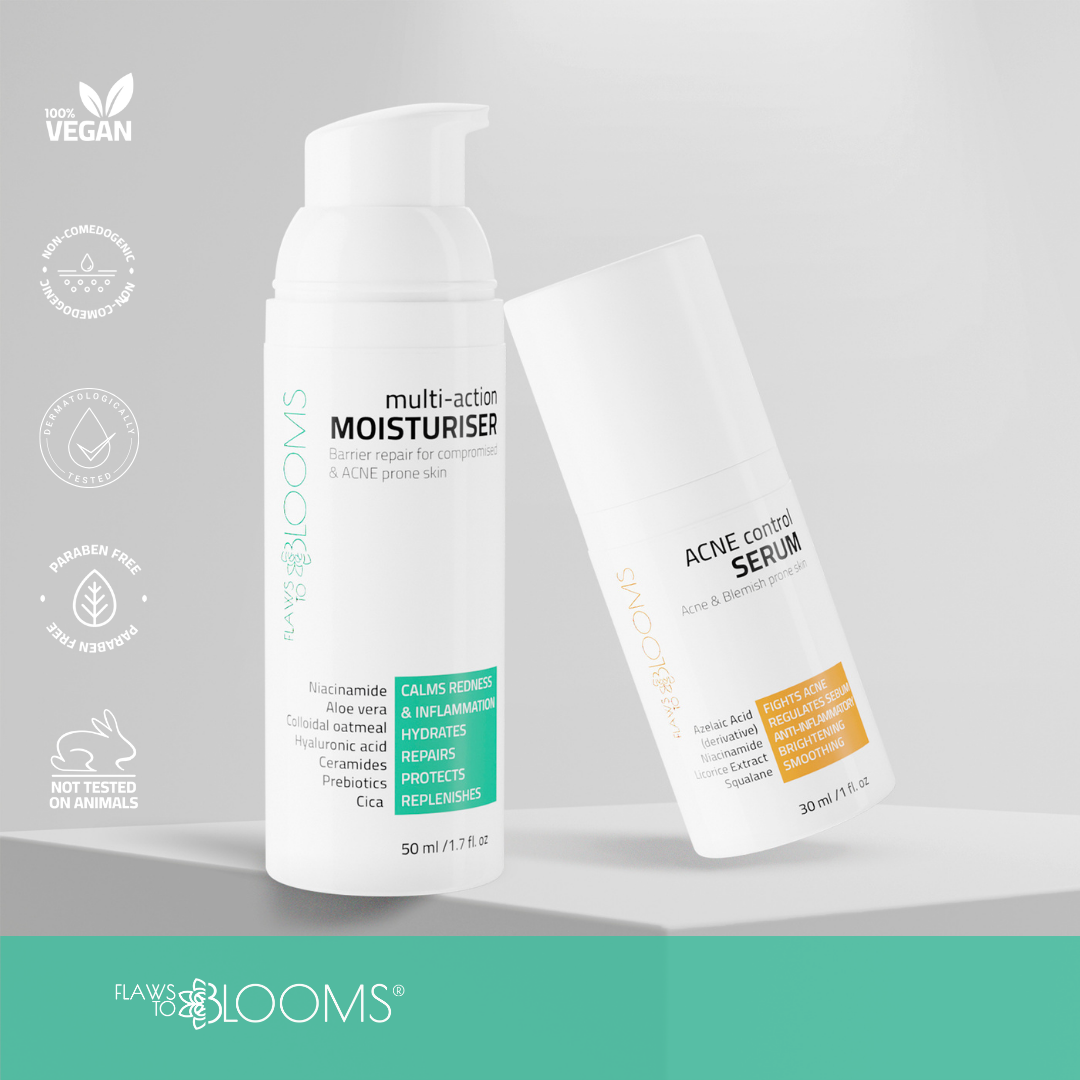If you're diligently following a skincare routine, using all the right ingredients—salicylic acid, azelaic acid, niacinamide, and more—but your acne still won't budge, you’re not alone. While effective skincare can dramatically improve mild to moderate acne, there are times when products alone simply aren’t enough. In some cases, what looks like stubborn acne may require medical attention or professional-grade treatments.
Understanding the Different Types of Acne
Before diving into when skincare isn’t enough, it's important to recognize the different types of acne—because not all breakouts are created equal. From blackheads and whiteheads to papules, pustules, nodules, and cysts, the type of acne you're dealing with plays a big role in how it should be treated.
👉 If you’re unsure what type of acne you have, check out our blog post Different Types of Acne: What Do You Really Have?, where we break it down with pictures for easy identification.
When Skincare Products Might Not Be Enough
Here are some signs it's time to go beyond skincare and consult a dermatologist or medical professional:
1. You Have Severe or Cystic Acne
Cystic acne develops deep under the skin, forming large, painful bumps that often don't come to a head. These lesions can last for weeks and frequently lead to scarring. Topical skincare products, even potent ones, usually aren’t effective on their own for this type of acne.
🧠 Research shows that severe forms of acne, such as nodulocystic acne, often require systemic treatments like oral antibiotics, hormonal therapy, or isotretinoin (commonly known by the brand name Accutane). [1]
2. You’ve Been Using Active Skincare for 3+ Months with No Results
If your skincare routine includes ingredients proven to help acne—like benzoyl peroxide, azelaic acid, or salicylic acid—and you’ve seen little to no improvement in 3 to 6 months, it's time to escalate treatment. Persistent acne may signal internal imbalances or resistant bacteria that skincare alone can’t address.
3. Your Acne Is Causing Emotional Distress
Acne isn’t just skin-deep. Studies have shown strong links between acne and increased levels of depression, anxiety, and low self-esteem. If acne is affecting your mental health, don’t wait—it’s a valid reason to seek professional support. There are treatments that can work faster and more effectively than skincare alone.
4. You Suspect Hormonal Acne
If you’re breaking out around your jawline or chin, especially during your menstrual cycle, you might be dealing with hormonal acne. Hormonal acne often requires internal treatment, such as oral contraceptives, anti-androgens like spironolactone, or specific dietary and lifestyle changes tailored to hormone regulation. [2]
5. You’re Experiencing Scarring or Post-Inflammatory Hyperpigmentation
Once scarring or deep pigmentation starts setting in, it's a sign the inflammation is severe or chronic. At this point, you might need prescription medications to calm the acne and in-office treatments like chemical peels, microneedling, or laser therapy to address scarring.
What to Expect From Professional Treatment
A dermatologist may recommend:
- Topical or oral antibiotics (for bacterial control)
- Hormonal treatments (for hormonal acne)
- Isotretinoin (for severe or resistant acne)
- Prescription-strength topicals like tretinoin or dapsone
- Clinical procedures: extraction, peels, or lasers
The earlier you intervene, the better your chances of preventing long-term damage like scarring or discoloration.
Bottom Line: Don’t Blame Yourself (or Your Skincare)
If you’ve been doing all the right things and still not seeing improvement, it’s not because you’ve failed—it’s because some types of acne go beyond what skincare can handle. Being proactive about seeking medical help is a strong step toward healing, not a last resort.
Further Reading
Check out our blog post on Acne Types to understand exactly what you're dealing with.
References:
- Zaenglein, A. L., et al. (2016). Guidelines of care for the management of acne vulgaris. Journal of the American Academy of Dermatology, 74(5), 945–973.e33.
- Thiboutot, D., & Gollnick, H. (2009). New insights into the management of acne: An update from the Global Alliance to Improve Outcomes in Acne. Journal of the American Academy of Dermatology, 60(5 Suppl), S1–S50.
- Koo, J. Y. M., & Smith, L. L. (1991). Psychological aspects of acne. Pediatric Dermatology, 8(3), 185–188.



